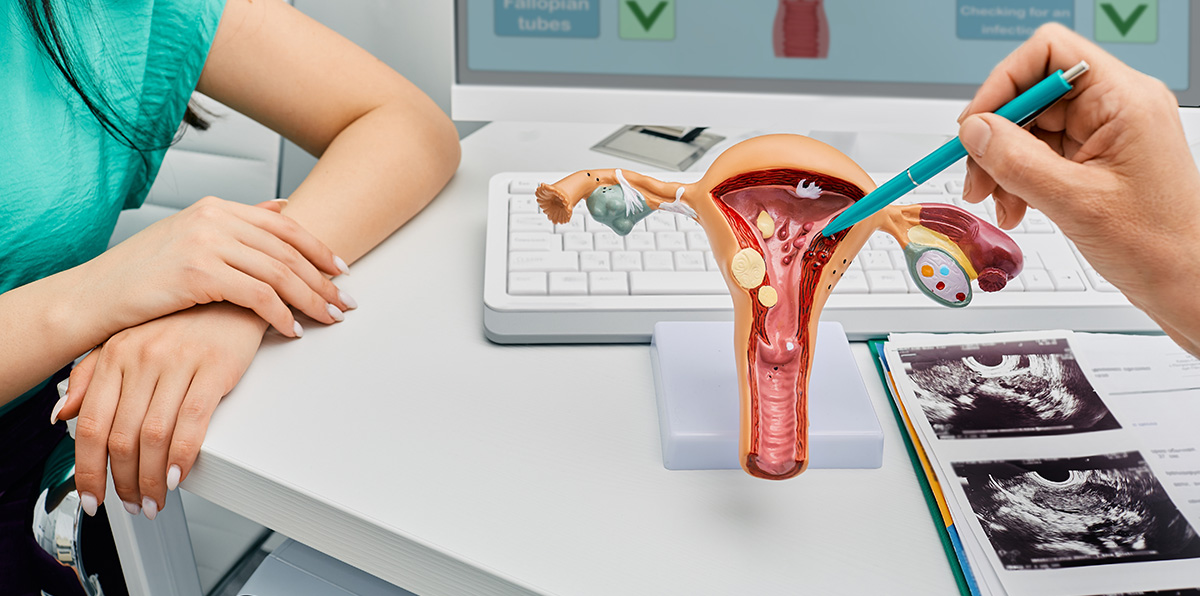In honor of the recent Fibroid Awareness Month, the board-certified gynecologists here at Gynecology Associates of Gwinnett thought now would be an excellent time to share some helpful information on fibroids and how they affect women. Uterine fibroids are the most common type of pelvic tumor found in women. Although they are almost always benign (non-cancerous), they can still negatively affect a woman’s health if not properly diagnosed and treated.
It can be challenging to detect the true cause of fibroids, but experts acknowledge that there is a strong association between changes in hormone levels and the development of fibroids. This is especially true for pregnant women. In some cases, a woman may have a genetic disposition to developing uterine fibroids based on a family history. Although up to 80% of women may experience uterine fibroids by the age of 50, many do not have any symptoms. Women with symptoms may experience irregular menstrual bleeding (including very heavy periods), pain or bloating in the pelvic area, increased menstrual cramping, and pain during sex. Fibroids can also cause potential fertility issues in some cases.
In the following video, our own Dr. Kristine Gould is joined by Dr. John Lipman of the Atlanta Fibroid Center to discuss fibroids in detail as well as the many ways they can affect women’s reproductive health:
Here at Gynecology Associates of Gwinnett, our reproductive healthcare providers have the knowledge and experience to diagnose and treat uterine fibroids. Depending on a woman’s needs and preferences, fibroids can be treated with medications, minimally-invasive procedures, or surgery. For more information on fibroids including all the details on potential treatment options, please contact Gynecology Associates of Gwinnett today. And don’t forget to ask about our full-service medical spa, MadEmEl Medical Aesthetics.


